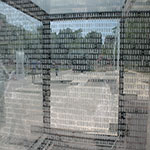Euroacademia Conferences
 Europe Inside-Out: Europe and Europeanness Exposed to Plural Observers (9th Edition) April 24 - 25, 2020
Europe Inside-Out: Europe and Europeanness Exposed to Plural Observers (9th Edition) April 24 - 25, 2020 Identities and Identifications: Politicized Uses of Collective Identities (9th Edition) June 12 - 13, 2020
Identities and Identifications: Politicized Uses of Collective Identities (9th Edition) June 12 - 13, 2020 8th Forum of Critical Studies: Asking Big Questions Again January 24 - 25, 2020
8th Forum of Critical Studies: Asking Big Questions Again January 24 - 25, 2020 Re-Inventing Eastern Europe (7th Edition) December 13 - 14, 2019
Re-Inventing Eastern Europe (7th Edition) December 13 - 14, 2019 The European Union and the Politicization of Europe (8th Edition) October 25 - 26, 2019
The European Union and the Politicization of Europe (8th Edition) October 25 - 26, 2019 Identities and Identifications: Politicized Uses of Collective Identities (8th Edition) June 28 - 29, 2019
Identities and Identifications: Politicized Uses of Collective Identities (8th Edition) June 28 - 29, 2019 The European Union and the Politicization of Europe (7th Edition) January 25 - 26, 2019
The European Union and the Politicization of Europe (7th Edition) January 25 - 26, 2019 7th Forum of Critical Studies: Asking Big Questions Again November 23 - 24, 2018
7th Forum of Critical Studies: Asking Big Questions Again November 23 - 24, 2018 Europe Inside-Out: Europe and Europeanness Exposed to Plural Observers (8th Edition) September 28 - 30, 2018
Europe Inside-Out: Europe and Europeanness Exposed to Plural Observers (8th Edition) September 28 - 30, 2018 Identities and Identifications: Politicized Uses of Collective Identities (7th Edition) June 14 - 15, 2018
Identities and Identifications: Politicized Uses of Collective Identities (7th Edition) June 14 - 15, 2018
The EU – Offering a Gap in the Structure
-
-

-
Presentation speakers
- Ioanna Psalti, Dime Limited, Oxford, UK
- Gry Osnes
- Download presentation
Abstract:
The EU exercises acts of agency that are collective in nature as motivation and actions aim to promote relationships of the ‘self’ (Member State) with others. Responsibility of the outcomes of such acts is distributed between the EU and the national governments. The agential capacity of the European Union is discussed in the context of the enterprising self and the human agency at the individual level. The paradigm for development that the EU presents is a hybrid between the emphasis on economic growth that mobilises the enterprising self, and the embracement of social policies that improve the agential capacity of human beings. The spheres of functioning in which the exercise of personal agency is gaining prominence through the EU actions are presented. Observations from surveys and experiential workshops deploying Morenian Action Methods, suggest that such agential top down acts may create a gap in the traditional structure, a safe “identity standpoint”, through which the individual strategically chooses to challenge traditional dichotomies. A self in constant transition and in interaction with the environment releases the spontaneity and creativity of the individuals to reassemble their understandings in an active, positive manner. Consequently such identity standpoint is viewed as a resource particularly as there is no antagonistic relationship to other levels of identity (no attempt to define the same terrain in conflicting ways). The narratives of those who experience such ‘self’ can offer insight into how such resource is used to chart one’s life course. Moreover such success stories may initiate a systemic change particularly as they can counteract incidents of resurfacing identity politics (as triggered for example by the Eurozone crisis).
-
Related Presentations

The Politicization of the European Identity
- Liljana Siljanovska

















